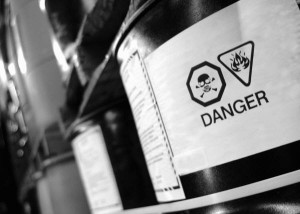 In my law practice, I handle claims for serious injury or death resulting from dangerous and defective products.
In my law practice, I handle claims for serious injury or death resulting from dangerous and defective products.
What are Dangerous and Defective Products?
The law that applies to dangerous and defective products is often called products liability law. Anyone that places a product into the stream of commerce is liable for injuries caused by a defect in the product when the product left its possession. Liability may be imposed on any seller of a product, including a manufacturer, distributor, wholesaler or retailer.
A product must be provided with every element necessary to make it safe for its intended use and without any condition that makes it unsafe for its intended use. If the product lacks any element necessary to make it safe or contained an unsafe condition, then the product is defective.
Theories of Liability
A seller may be liable under various theories of liability. A seller may be strictly liable, liable for negligence or liable for breach of warranty.
Under strict liability, liability is imposed even if all possible care has been taken in the preparation and sale of the product. A specific defect in the product need not be proven if the product malfunctioned during only normal or anticipated use and there are no reasonable alternate causes for the accident.
Liability for negligence may be imposed when a product is carelessly manufactured or designed, lacks appropriate warnings or has an improper warning.
A breach of warranty may impose liability when a fact or promise is made about the quality or performance of the product. A warranty that a product is merchantable, that it is fit for ordinary purposes, is implied in its sale.
Types of Products
Any product can be defective. Defective products may include industrial products, such as machines and equipment in a factory, plant or work site. Defective products may also include any type of consumer product ranging from toys to medical devices to medications to cars.
What if there is substantial change in the product?
The seller is responsible only for defects that exist at the time the product leaves its control. A seller may still be liable, however, if changes were made it could have reasonably foreseen or expected. For example, a machine may be sold with a guard to prevent injury from accidental contact with moving parts. If the seller should reasonably anticipate that the owner of the machine may remove the guard for easier operation, it may be liable for failing to install additional safe guards to prevent the machine from operating without the guard in place.
Should you keep the defective product?
If you believe you were injured by a defective product, it is important and sometimes critical for you to preserve the product in the condition it was in at the time of your injury. If you believe the product was defectively manufactured, but you lose the product or it is substantially changed, you could be prohibited from successfully bringing a lawsuit for your injuries. This concept is known as spoilation of evidence.
If you or someone you know has been injured by a dangerous or defective product, I can assist you in evaluating your case.
» Read My Sample Dangerous and Defective Products Cases
HELPFUL RESOURCES
» Consumer Product Safety Commission
» Food and Drug Administration
» Motor Vehicle Safety Problems & Issues
» American National Standards Institute




